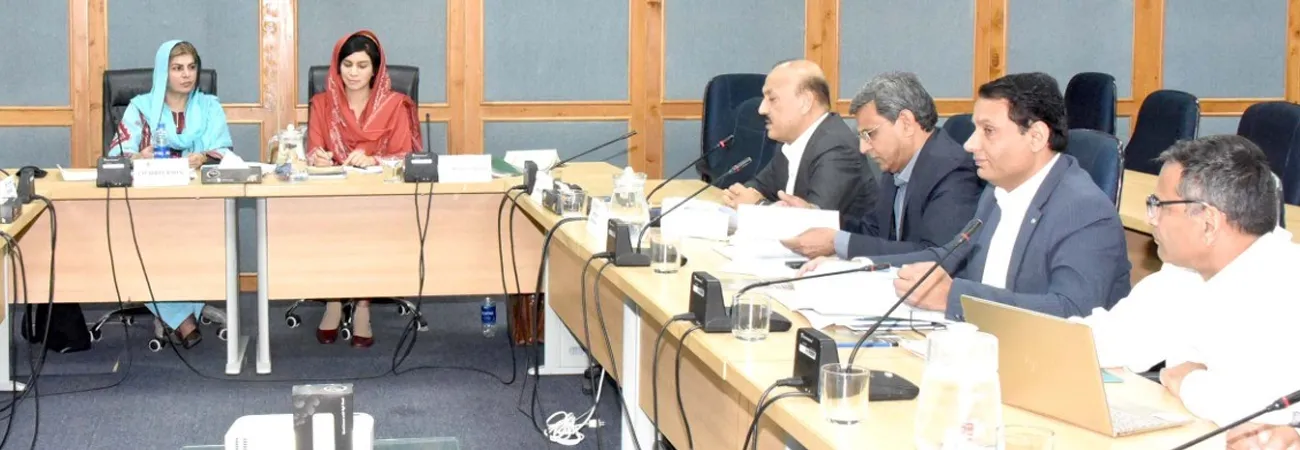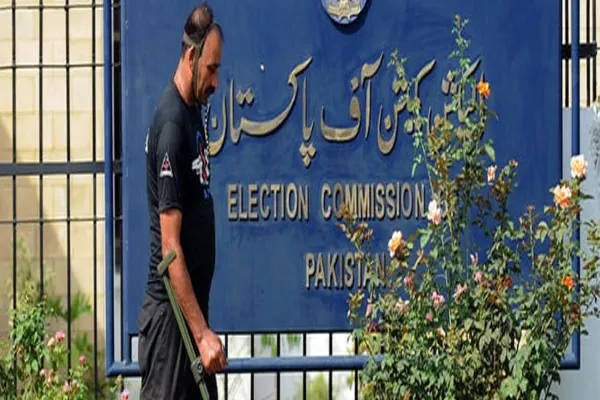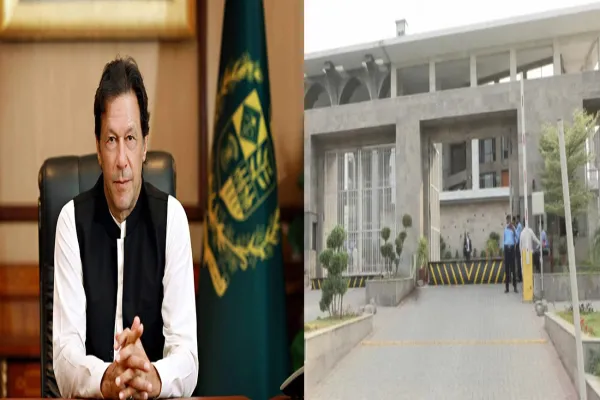i NEWS PAKISTAN
The Senate Functional Committee on Human Rights on Tuesday expressed serious concerns over the absence of Inspector General Sindh Police in the meeting saying that his presence was essential for addressing critical issues related to the growing number of cases of domestic violence, rapes, murders and other crimes against innocent citizens of the province. The meeting of Function Committee held at Parliament House with Samina Mumtaz Zehri in chair was attended by Senator Dr. Zarqa Suharwardy Taimur, Senator Qurat-ul-Ain Marri, Senator Mohammad Humayun Mohmand, Senator Aimal Wali Khan, Senator Jam Saifullah Khan, the Secretary of the Ministry of Human Rights, the Chairperson of Sindh Human Rights Commission and senior officials from the Sindh Police, Human Rights Commission, AIGP Gender Crime, Prosecutor General and Human Rights. Senator Samina Mumtaz Zehri expressing concerns over IG Sindh absence reiterated that the Committee’s priority was to work collectively towards creating a safer society and despite repeated reminders, the IG had still not managed to attend the meeting that tantamount to a serious violation of the Rules.
During the briefing, officials informed the members that complaints could be lodged by calling the helpline 1715 at the IG office. Once a complaint is reported, the concerned officer promptly responds. The committee was also briefed on the Zarra Alert and Zainab Alert systems, which have made the complaint process more accessible to the general public. The members stressed the importance of raising public awareness and suggested having a media representative to disseminate crucial information. Highlighting the need for awareness, Senator Samina Mumtaz Zehri said that people fear the courts and police for reporting the cases, and in cases of domestic violence, battered and abused women often remain with their abusers, enduring life-threatening conditions. The Secretary (MoHR) also informed that the reporting of such cases was lower in rural areas. The Chairperson, while acknowledging this, added that power often resides with the jirgas in those regions. She further states that if the IG does not consider these issues important, they cannot be properly addressed. Of the 1058 regular cases, 985 are still pending, and it was necessary to identify where things have gone wrong.
She highlighted that incidents of rape were occurring in madrassas in Sindh, with no action being taken against those responsible. She emphasized that we have faced significant issues with investigations and prosecutions as prosecutors often side with criminals, thereby, training personnel appropriately to tackle these growing crimes was paramount and for the national interest of the country. Senator Samina Mumtaz Zehri also inquired about the security mechanism in Sindh, particularly in Karachi. She discussed in detail the issues related to child marriages and the actions taken to put an end to this iniquity. The officer from the concerned department reported that they have implemented restraints on child marriages and, through certain preventive measures, have reduced the number of cases. The Secretary (MoHR) added that data was not shared by the provinces, which weakens the overall mechanism. Senator Samina recommended that the department must share the data with the ministries and provide proper training to the staff.
She also highlighted that when a child suffers from rape, molestation or abuse, parents often hesitate to report it out of fear of societal judgment. She also suggested that victims should be provided with therapy sessions so that they can overcome the trauma. In addition, the Chair also lamented the lack of speed limit signs on the roads. She added that road accidents were mainly due to illegal licenses. She criticized the irresponsible behavior of not wearing safety helmets and the absence of genuine number plates on vehicles. She also recommended the proper trainings of constables and the improving lack of traffic signs in Sindh. The DIG traffic reported that most casualties in road accidents involve motorcyclists. He explained that the primary causes of these casualties were two factors: either the motorcyclist does not wear a helmet or does not have rearview mirrors, both of which contribute to accidents. He further added that they were currently working to resolve this issue.
Additionally, fines for drunk driving were reported to range from Rs. 500 to 700. To which the chairperson asked for the list of fines and requested to make it more strict. Furthermore, the Chair underscored the importance of training staff and new recruits, as well as making the offices more women-friendly. She emphasized that working women deserve greater respect and that it was essential to create a society free from harassment, where women can openly voice their concerns. The Committee was briefed on women’s participation in the police department, media campaigns aimed at encouraging more women to join the field, and the overall performance and functions of the Sindh Human Rights Commission. In her closing remarks, Senator Samina recommended that the Directors General (DGs) from all four provinces come together to address these issues collectively.
Credit: Independent News Pakistan









